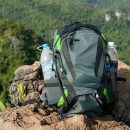Swamp Tours – Bird Watching in Louisiana
Louisiana is renowned throughout the United States for its diverse ecosystem, which is home to a huge array of wildlife, including many different cranes, songbirds and various wading-water and shore birds. Swamp tours offer an opportunity for tourists and residents to encounter the native birds up close. Due to the nature of the wetlands, this is something that is ordinarily very difficult to achieve by hiking.
If you want to see the most variety of birds, then the best time to take swamp tours is in the winter or the spring. However, its worth noting that very few reptiles and amphibians will be active during the winter because they are unable to properly thermo regulate their body temperature. The majority of migratory birds will be present in the middle of the spring time in Louisiana, which is when you will be able to see the most color and activity. During spring migration, Barataria Bay, located in Louisiana, is estimated to have one of the densest concentrations of species.
Another good location for bird watching can be found in the southern part of the state where the Sabine Wildlife Refuge is located. Since there are over 120,000 acres inside the perimeter of the refuge, it may take several tries to find the species that youre looking for. Swamp tours are one of the only ways to navigate deep into the heart of the refuge, and its an excellent place to take pictures of Peregrine Falcons, among other predatory birds. Additionally, many people come to Louisiana to see the Wood Storks that migrate into the state during the winter months. Sabine Wildlife Refuge is also home to a many other native animals, including alligators, raccoons and 132 different species of fish.
If youre looking for a way to learn more about the native birds while taking swamp tours, then its a good idea to contact a local wildlife club before heading out. For example, the Crescent Bird Club in Louisiana is an excellent resource for discovering the best places to find specific birds at different times of the year. Additionally, the Orleans Audubon Society can help identify the birds that are photographed if you need help. The best way to keep track of the birds that are located is to bring along a pocket field guide. The ideal bird watching field guide will have color illustrations and photographs to accompany the species profile.











